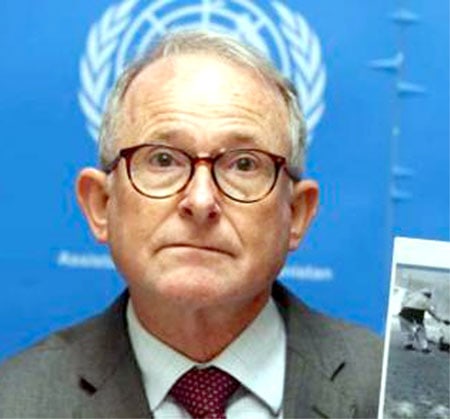The UN special rapporteur on the situation of human rights in Afghanistan, Richard Bennett, is reportedly scheduled to visit Afghanistan from May 15 to May 26, according to a UN statement.
“Bennett said he would engage with the de facto authorities and a broad range of stakeholders to assess the situation of human rights, including with regard to the implementation of obligations under international human rights instruments ratified by Afghanistan, and to offer assistance to address and prevent violations and abuses,” the statement said.
Based on some reports, Bennett will visit Afghan provinces as well.
“Unarmed people are being tortured, killed and mistreated. Mr. Bennett can provide a neutral report which can cover all cases,” said Walif Frozan, an international relations analyst.
“The special rapporteur will tell the Taliban leader that if the Taliban government wants to be part of the international community, there is no possibility to ignore human rights,” said Sayed Javad Sijadi, a university instructor.
Bennet was appointed Special Rapporteur by the UN Human Rights Council on April 1, 2022. He officially assumed his duties on May 1, 2022.
In an interview with the TOLOnews, Bennett said that in his visit to Afghanistan he will investigate human rights violations.
A United Nations Development Program (UNDP) official said in order to address the humanitarian and economic challenges in Afghanistan, it is necessary to invest in reviving Afghanistan’s economy.
Achim Steiner, Director General of UNDP, who recently came to Afghanistan, in a meeting in Kabul on Tuesday said it is necessary to maintain the international community’s interest in Afghanistan in order to provide humanitarian assistance to the country.
“The answer to these challenges is also to invest in the recovery of Afghanistan’s economy. That means recognizing that the people of this country need urgent support to also be able to earn their own livelihoods, to have income to be able to buy food, to send children to school, to pay medical bills,” he said.
Steiner said several factors have contributed to the economic freefall of the country which includes not only “the political turmoil, but also Covid-19 and a drought (that) has created an economic reality in Afghanistan today that is essentially turning more and more people into poor people.”—Agencies










